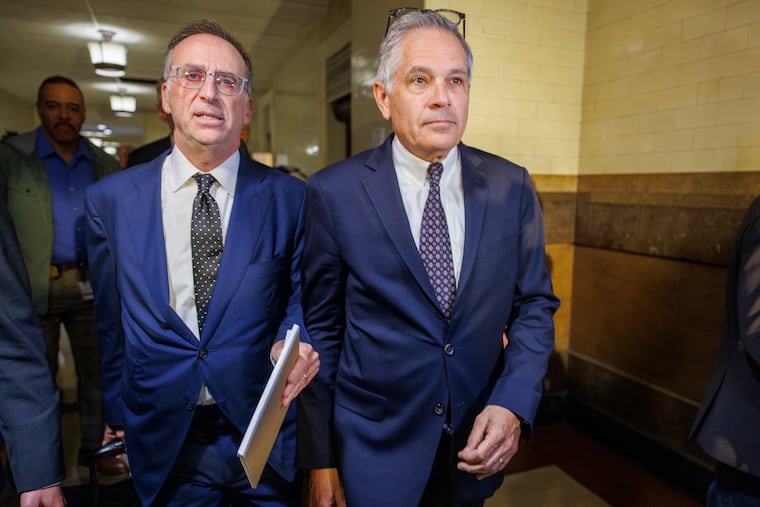Larry Krasner’s legal bout with Elon Musk on hold, as tech billionaire seeks to move it to federal court
With a consequential presidential election just days away, Larry Krasner is challenging Musk’s $1 million giveaway to voters.

Philadelphia District Attorney Larry Krasner’s suit against Elon Musk and his political action committee has been placed on hold while the tech billionaire attempts to move the case to federal court.
Though the parties were scheduled to appear Thursday for an emergency hearing before Common Pleas Court Judge Angelo Foglietta, Musk did not show.
“He is a very busy man who can’t just materialize on 12 hours’ notice,” his attorney, Matt Haverstick, said during the brief proceeding.
Either way, Foglietta said he was not able to act until learning whether the federal courts will take the case or relinquish it back to his courtroom.
As for the schedule of Musk, who also owns the spacecraft manufacturer SpaceX, Foglietta agreed: “He’s not going to get on a rocket ship and land in Philadelphia.”
Krasner sued Musk and his America PAC earlier this week, saying they were violating state lottery and consumer protection laws by running a $1 million daily giveaway to registered voters in Pennsylvania and other battleground states.
To enter, residents must be registered voters and sign a petition organized by the PAC affirming their support for free speech and the right to bear arms.
Musk, who has emerged as a top Trump surrogate in the state, has said he hoped the giveaways would drive up Republican voter registration numbers. But several election-law experts — and the Justice Department — have warned that the giveaway appears to violate federal laws banning giving money or other things of value in exchange for votes or registering to vote.
Krasner’s lawsuit took a slightly different approach, targeting Musk under state laws that prohibit anyone but the state from running a lottery in Pennsylvania. He also accused the PAC of failing to provide information on how it was protecting the personal information of entrants.
But in seeking to move the case, Haverstick accused Krasner — in court papers late Wednesday — of trying to shoehorn a federal case into a state court.
“Allegations of interference in a federal election for President of the United States … are matters for the federal judiciary,” he wrote.
Haverstick also said during Thursday’s hearing that he believed Musk was named as a defendant in the suit as a “publicity stunt,” and that the intent was to create a “circus atmosphere” in the courtroom.
Krasner’s attorneys denied that. And they sought to challenge the assertion that the case was better suited for federal court, saying a district attorney can use local laws to stop illegal behavior even if it happens to collide with an election. One of the lawyers, John Summers, used the example of a person shooting voters at the polls, saying a prosecutor’s office could charge that person with homicide — and it would not have to be a federal case.
Summers spent more time objecting to what he characterized as Musk’s last-minute attempt to change the case’s jurisdiction. He called it “frivolous” and cast it as an attempt to stall the proceedings in order to continue running the sweepstakes.
“This was both cowardly as well as irresponsible,” Summers said. “The district attorney is here to proceed.”
The case has temporarily been assigned to U.S. District Judge Gerald J. Pappert, who has given Musk until Friday morning to respond to Krasner’s request to send the case back to state court.